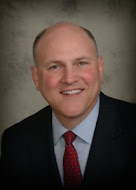Estate Planning is a "Team" Activity
Aug 15, 2008
Good Estate Planning requires a “team” of professional advisors. The skills and knowledge required to properly assist clients becomes increasingly complex year by year.
Too often, I have been involved in, or observed, "planning" that was done in a one-dimensional manner. That is, an advisor has taken steps for the client, but with a myopic view. For example, if, an attorney advises or drafts Estate Planning documents, without appreciating the tax, financial or insurance consequences of such actions on behalf of a client, the end result can not only fail to accomplish the clients' goals, but may create more significant problems than they originally had.
There are too many variables involved in a proper Estate Plan for one professional advisor (or one discipline) to be expert on all of them. Estate Planning today involves knowledge of multiple areas including State and Federal laws regarding insurance, financial planning and reporting, challenging investment issues in periods of economic uncertainty, health, management and custodial issues, and changing rules regarding Probate and Trust administration. It is important for clients to align themselves not only with a good Estate Planning attorney, but with competent and talented financial advisors, and in the majority of cases good independent tax advisors. My own tendencies favor Certified Public Accountants (“CPA”), but I recognize that quality and competency in any professional field is ultimately more important that the little letters that follow the advisor’s name.
When a new client comes to my office for Estate Planning, part of the initial meeting involves learning about their other advisors. I want to be sure that those advisors are all on the same proverbial “page,” before we complete the Estate Plan.
It is equally important that the “team” be able to work together. Like a sports team, “chemistry” is an important factor. Egos must be put aside for the best interests of our clients. In my profession, particularly, we have that “never let them see you sweat” mentality. The law school experience (at least back in the early 1980's) emphasized the lawyers advocacy role and conditioned us to argue and advocate. But in the real world, we must advocate for the client in a non-confrontational manner, by using all available resources, including the expertise of the other professional advisors involved.
I don’t care who the team “leader” is. In my experience, that varies with the particular dynamics of the associations. Some clients expect me to be the leader. That’s fine. Other clients have come to me over the years on the recommendation of their CPA, Insurance or Financial Advisor. In many cases, those advisors continue to be the pivotal “player” on the team. That works for me. My view is that if we all focus on what is best for the client, the team will mesh and client goals will be met.
When contemplating an Estate Plan, a client should look to an Estate Planning advisor who works well with other professionals as a team to create the best Estate Planning environment, and thus, the best Estate Plan for them.








